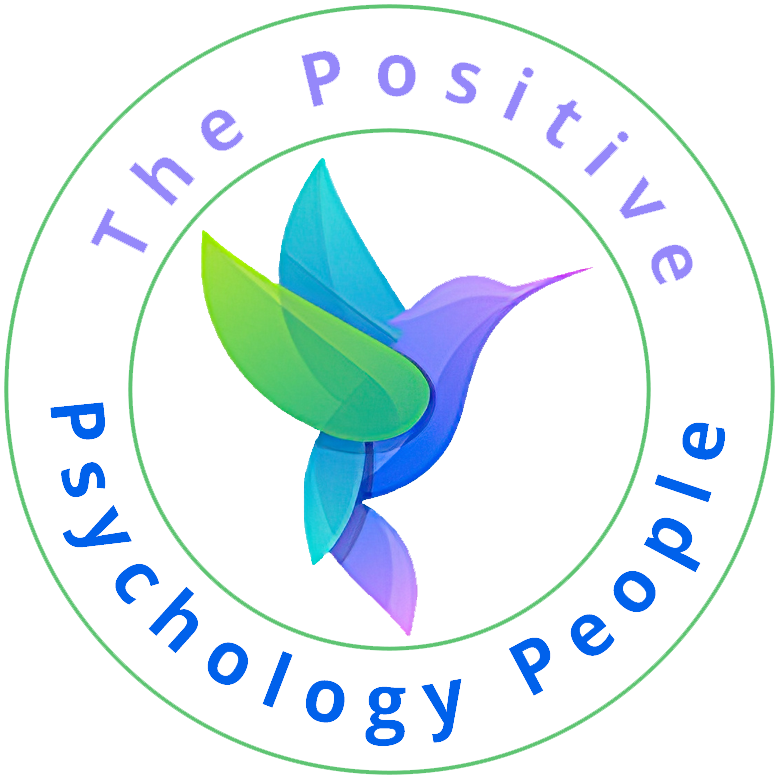“Seeding Values” & Positive Education
“Semear Valores”/ Seeding Values (“SV”) is the premise and the name of the program that is being implemented in a school in Cascais, Portugal, with 50 children. The program is born from the will of a mother – with an Executive Master in Applied Positive Psychology (EMAPP)[1] – to bring Positive Psychology to the education of the youth and a whole strength based language.
Positive Education is based on building children’s strengths, enabling them to reach their full potential[2]. School is the best place for initiatives that promote children’s happiness and well-being[3]. Children spend a great amount of their time there and the experiences they live in school have a significant impact on their well-being[4]. Positive education programs have several benefits, namely, they contribute to resilience, positive emotions, assertiveness, creativity and optimism and to the prevention of depression[2].
“Seeding Values”, Forces of Character & Values
Based on Peterson and Seligman’s Model of Virtues and Character Strengths[5], “SV” aims to promote the use of character strengths in the service of values in children from 1st to 4th grade (6 to 10 years old). The decision to work with virtues and character strengths was made because: first, they are related with well-being and flourishing among children[6], and second, it is possible to cultivate and strengthen them through regular practice[7]. In this program, the use of character strengths is grounded in universally accepted human values (e.g., Peace)[8] and is headed to contexts where children can apply them (e.g., Family). Value-based education is associated with the question of “what makes a ‘good’ citizen?” and allows us to address issues such as “respect” and “tolerance”[9]. In addition to personal development, value-based programs also help to prepare children to become responsible citizens in multicultural contexts[9], which is a particularly important aspect in Europe at the present time.
“Seeding Values”: program description
The pilot program was launched in 2015/16 with a 3rd grade class. The enthusiasm and positive feedback from the students (and the teacher) led to its continuity in the current school year, now extended to the four classes from the 1st to the 4th grade. The program is included in the school curriculum and is held every two weeks for a total of 18 sessions for each class. Before the students’ sessions take place, all school teachers had a brief training on the subject. Like other programs[10], students participate in several Positive Psychology exercises that allow them to explore and identify their signature strengths and to develop different character strengths. In this way, they learn to recognize their strengths as part of their identity. Because the exercises are carried out in a class, students can identify and appreciate the different character strengths in their colleagues. In addition to the in-sessions exercises, the use of strengths is reinforced also in other contexts, through monthly practical challenges to be developed in the school with the teacher’s collaboration.
“Seeding Values”: the future!
The program is being evaluated and results are expected in August. The children’s feedback on the pilot version whet our appetite. One girl shared: “I felt happy … and I felt that I became a better girl because I get close to some colleagues with whom I didn’t play”. One boy said: “It was cool! I learned new words. I didn’t know that making laugh was having humor and that it was a strength”.
Finally, I share one of the program challenges that you can put into practice with your Family:

You can follow Semear Valores on Facebook: https://www.facebook.com/semearvalores/
Semear Valores Nas Escolas
Semear Valores & Educação Positiva
Semear Valores é a premissa e o nome do programa que está a ser implementado num colégio em Cascais, com 50 crianças. O programa nasce da vontade de uma mãe -com um Executive Master em Psicologia Positiva Aplicada (EMAPP)[1]- trazer a Psicologia Positiva para a educação dos mais jovens e com ela toda uma linguagem capacitadora.
A Educação Positiva baseia-se na construção dos pontos fortes das crianças, permitindo-lhes alcançar o seu pleno potencial[2]. A escola é o melhor local para iniciativas que promovem a felicidade e bem-estar das crianças[3]. Lá, as crianças passam grande parte do seu tempo e as suas vivências no contexto escolar têm um impacto significativo no seu bem-estar[4]. Os programas de educação positiva apresentam vários benefícios, contribuindo para o aumento da resiliência, das emoções positivas, da assertividade, da criatividade e do otimismo e para a prevenção da depressão[2].
Semear Valores, Forças de Caráter & Valores
Baseado no modelo das Virtudes e Forças de Caráter de Peterson e Seligman[5], o “Semear Valores” tem como objetivo promover o uso das forças de caráter ao serviço dos valores em crianças do 1º ciclo. Optou-se por trabalhar as virtudes e forças de caráter por dois motivos: primeiro, porque estas estão relacionadas com o bem-estar e o florescimento nas crianças[6] e segundo, por ser possível cultivá-las e fortalecê-las através da prática regular[7]. Neste programa, o uso das forças de caráter é alicerçado em valores humanos, universalmente aceites (e.g., Paz)[8] e é orientado para contextos onde as crianças os podem aplicar (e.g., Família). A educação baseada em valores está relacionada com a pergunta “o que torna uma pessoa num bom cidadão?” e permite abordar questões como o “respeito” e a “tolerância”[9]. Para além de desenvolvimento pessoal, os programas que trabalham os valores contribuem também para preparar as crianças para se tornarem cidadãos responsáveis em contextos multiculturais[9], sendo este um aspeto especialmente relevante na Europa no momento atual.
Semear Valores: descrição do programa
Em 2015/16 foi lançado o programa piloto com uma turma do 3º ano. O entusiasmo e feedback positivo dos alunos (e da professora) levou à sua continuidade no presente ano letivo, agora ampliado às quatro turmas do 1º ao 4º ano. O programa está incluído no currículo escolar e acontece quinzenalmente, num total de 18 sessões para cada turma. Antes das sessões para os alunos iniciarem, todas as professoras da escola tiveram uma breve formação sobre o tema. À semelhança de outros programas[10], os alunos participam em vários exercícios da Psicologia Positiva que lhes permitem explorar e identificar as suas forças de assinatura e desenvolver diferentes forças de caráter. Desta forma, aprendem a reconhecer as suas forças como parte da sua identidade. O facto de os exercícios serem realizados em contexto de turma, permite ainda aos alunos identificar e apreciar as diferentes forças de caráter nos colegas. Para além dos exercícios desenvolvidos nas sessões, reforça-se o uso das forças também noutros contextos, através de desafios práticos mensais a desenvolver na escola com a colaboração da professora.
Semear Valores: o futuro!
O programa está a ser avaliado e esperam-se resultados em Agosto. O feedback das crianças sobre a versão piloto deixa água na boca. Uma menina partilhou: “Senti-me feliz (…) e senti que fiquei uma menina melhor, porque me aproximei de alguns colegas com quem não brincava”. Um rapaz disse: “Foi fixe! Aprendi palavras novas. Não sabia que fazer rir era ter humor e que isso era uma força”.
Finalmente, partilho um dos desafios do programa que poderá pôr em prática na sua família:

Pode acompanhar o Semear Valores em: https://www.facebook.com/semearvalores/
Notas e Bibliografia/ Notes and Bibliography:
-
- EMAPP is a postgraduate course of the / O EMAPP é uma pós-graduação do: Instituto Superior de Ciências Sociais e Políticas da Universidade de Lisboa: http://iepg.iscsp.ulisboa.pt/pos-graduacoes/gestao-de-recursos-humanos/psicologia-positiva-aplicada/objectivos-e-destinatarios
-
- Seligman, M. (2012). A Vida que Floresce. Editora Estrela Polar.
-
- Proctor, C., Tsukayama, E., Wood, A. M., Maltby, J., Eades, J. F., & Linley, P. A. (2011). Strengths Gym: The impact of a character strengths-based intervention on the life satisfaction and well-being of adolescents. The Journal of Positive Psychology: Dedicated to furthering research and promoting good practice, 6(5): 377- 388.
-
- Seligman, M.E.P., Ernst, R.M., Gillham, J., Reivich, K., & Linkins, M. (2009). Positive education: Positive psychology and classroom interventions. Oxford Review of Education, 35: 293–311.
-
- Peterson, C., & Seligman, M. E. P. (2004). Character strengths and virtues: A handbook and classification. New York: Oxford University Press and Washington, DC: American Psychological Association.
-
- Park, N., & Peterson, C. (2009). Strengths of character in schools. In R. Gilman, E.S. Huebner, & M.J. Furlong (Eds.), Handbook of positive psychology in schools: 65–76. New York, NY: Routledge.
-
- Lyubomirsky. S. & Layous, K. (2013). How Do Simple Positive Activities Increase Well-Being? Current Directions in Psychological Science, 22(1):157-62.
-
- Arweck, E., & Nesbitt, E. (2004). Living Values: an educational program – from initiative to uptake. British Journal of Religious Education, 26 (2): 133-149.
-
- Arweck, E. & Nesbitt, E. (2007) Spirituality in Education: Promoting Children’s Spiritual Development through Values. Journal of Contemporary Religion, 22(3): 311-326.
- For instance, the program “Strengths Gym” in Great Britain (Proctor et al., 2011) or “Educar nas Virtudes” in Portugal (Silva, 2013).
Por exemplo, o programa “Strengths Gym” na Grã-Bretanha (Proctor et al., 2011) ou “Educar nas Virtudes” em Portugal (Silva, 2013): http://repositorio.ul.pt/bitstream/10451/10604/1/ulsd067516_td_tese.pdf).
About the author: Patrícia is an educational and community psychologist and a trainer. She is a member of “The Positive Psychology People” team. She was a EMAPP colleague of Mafalda Carvalho – the mentor of “Semear Valores” – and helps in its evaluation.
Sobre a autora: Patrícia Sarmento é psicóloga educacional e comunitária e formadora. Integra a equipa da “The Positive Psychology People” desde a sua criação. Foi colega de Mafalda Carvalho -a mentora do “Semear Valores”- no EMAPP e colabora na sua avaliação.

